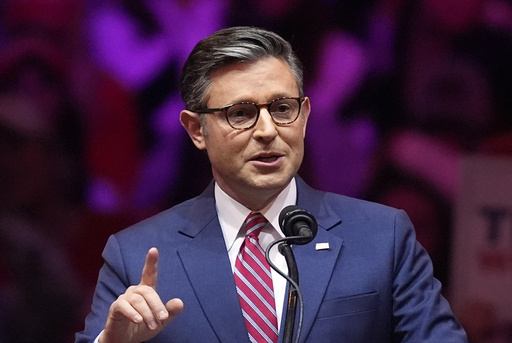
WASHINGTON — Starting this Friday, Americans can begin registering for health care coverage through the Affordable Care Act marketplace for the year 2025. This enrollment period comes just days before a presidential election that could endanger eligibility and elevate costs for millions currently enrolled in the program.
As the election draws closer, the future of ‘Obamacare’ has become a pivotal issue. A prominent Republican leader has recently promised significant overhauls to the program in the event that Donald Trump wins the presidency. The fate of billions in tax credits, which were introduced during the COVID-19 pandemic, also hangs in the balance. These credits have broadened eligibility for countless Americans, making healthcare coverage more accessible and leading to a notable increase in enrollment.
According to U.S. Health and Human Services Secretary Xavier Becerra, nearly all of the 21 million participants in the program have relied on these subsidies, which are set to expire next year. “Americans can genuinely view health care not merely as a privilege but as a right,” Becerra stated. He is heading to Arizona, a key political state, on Friday to kick off the open enrollment period. “I believe no one wants their right to affordable health insurance coverage taken away.”
If Trump secures the presidency and Republicans regain control of Congress in Tuesday’s high-stakes elections, considerable changes to the program are likely. Trump’s allies have openly discussed scaling back the Affordable Care Act, a notable achievement of former President Barack Obama, a Democrat.
During a campaign event in Pennsylvania, House Speaker Mike Johnson declared, “No Obamacare,” pledging “massive reform” if Trump occupies the Oval Office alongside a Republican Congress. “Health care reform is going to be a major focus of the agenda,” Johnson communicated in a video obtained by NBC News. Following his remarks, Johnson’s office clarified that he does not intend to fully repeal the legislation. However, the statement highlighted the intention of Johnson and Trump to possibly reshape federal government social programs should Republicans gain power.
Trump has mentioned having “concepts of a plan” to modify the Affordable Care Act, a reform he could not completely realize during his previous administration. Moreover, concerns around spending and fraud have been raised by Republicans in recent months.
Under President Biden, enrollment numbers have increased significantly, reversing years of decline seen during Trump’s time, which limited enrollment to a record low of 11 million. Nevertheless, this resurgence in enrollment has required taxpayers to invest billions more into the program. The funds have supported subsidies, reducing premiums substantially for many enrolled participants.
To maintain these subsidies, Congress must enact a new law, which could incur expenses as high as $335 billion over ten years. Some Republicans have expressed opposition to this projected spending amount. Amidst these discussions, Democrats have warned voters of Republican efforts to potentially eradicate the Affordable Care Act altogether, with the urgency of these warnings amplifying as Election Day approaches.
In Wisconsin, Vice President Kamala Harris reiterated this warning, asserting that Johnson’s comments reveal the GOP’s agenda to dismantle health care coverage. “This has been a long-standing goal of Donald Trump,” Harris commented. “He has made numerous attempts to abolish the Affordable Care Act, and we now have additional confirmation of that agenda from his supporter, the House Speaker.”
While the Biden administration has broadened the program in various ways, such measures are likely to be curtailed under Trump’s leadership. For example, the existing administration has allocated more resources to assist organizations in guiding individuals through the enrollment process. Additionally, a new regulation was introduced to widen eligibility to include immigrants who came to the U.S. as children. Approximately 100,000 of these immigrants, known as “Dreamers,” are anticipated to enroll for healthcare coverage for the first time this year.
However, Republican attorneys general in 15 states have pursued legal action to prevent their enrollment.
Open enrollment will close on January 15, but individuals must register by December 15 to have coverage in the new year.
